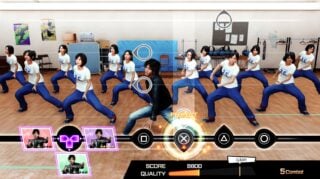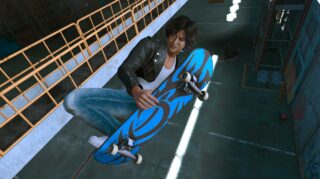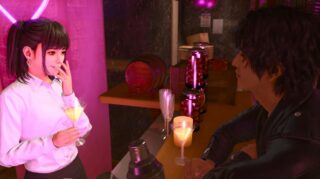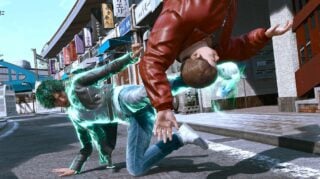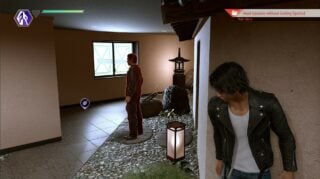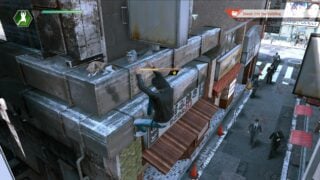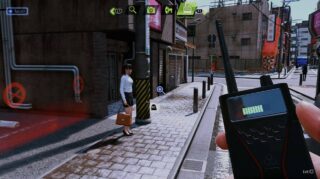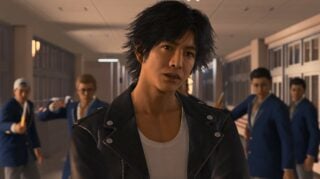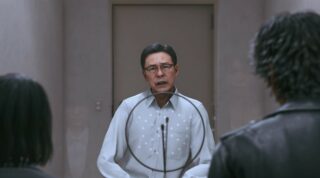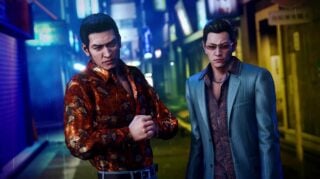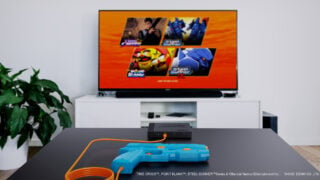Review: Lost Judgment finds its feet in a much-improved sequel
Lively combat and a better detective story elevates Lost Judgment above the original
- Game director
- Koji Yoshida
- Key Credits
- Kazuki Hosokawa (Producer), Tsuyoshi Furuta (Writer)

If you thought your school days were rough, at least the staff never suplexed the students.
That’s a regular occurrence in this wildly entertaining follow-up to 2018’s Judgment; a sequel that ponders what would happen if a street brawler was employed to police a high school’s hallways. The answer: a very long queue outside the nurse’s office and a whole lot of teeth for the janitor to collect. The things this guy can do carrying a desk makes the Victorian cane look like a treat.
This is the Ryu Ga Gotoku way, and once you’ve met some of these horrible youths, you’ll agree it is the right way. The fighter in question is the returning Takayuki Yagami; detective by trade, bone-breaker by nature.
The irony of ‘Tak’ is that he was devised as an alternative to Yakuza’s traditional thugs, only to deploy just as brutal a brand of thumping justice. He’s basically Kazuma Kiryu with a business card. Not a guy any reasonable principal would unleash on the corridors of their institution.
But these are unreasonable times. Seiryo High School is terrorized by a series of extreme bullying incidents, requiring Yagami to infiltrate its classrooms as an advisor to the afterschool mystery club. That setup might give you pause: the topic of bullying feels both too delicate for the series’ sledgehammer subtlety, and too serious to sit alongside the goofy hijinks that unfold in its margins. Is a man who regularly feeds traffic cones to punks a good advocate for compassion and care?
A sigh of relief: Lost Judgment treads the line carefully, unpicking an earlier bullying case without resorting to a ‘punching fixes everything’ solution or slipping too far into mawkish messages of forgiveness. Okay, plenty of teenagers get decked on the way, but we’re not talking weedy dweebs. God knows what Seiryo’s cafeteria is feeding these brutes. It also softens the blows with a new fighting stance that causes victims to faint with fear. Wrecking an entire basketball team seems less cruel this way.
Shifting the focus from the gangster underworld also gives Lost Judgment a chance to find its own voice away from the main Yakuza series. It’s a more unpredictable mystery as a result, asking you to draw ties from a classroom drama to a horrible corpse found nearby (honestly, the rendering on it is *grim*), before throwing in a juicy impossible crime for good measure. Where the first game plodded towards an inevitable gangland showdown, the sequel is a far more curious journey.
There’s so much more detective DNA in Lost Judgment’s blood. Yagami’s role as a consultant to the mystery club isn’t just a cute plot contrivance but almost a second campaign. You partner with a spunky student sleuth to infiltrate rival clubs where you master their activities to get members to open up about torrid affairs or vigilante wrestlers operating in the student body. Some of these brats make Kamurocho’s hoodlums look saintly by comparison.
So it is Yagami finds himself playing a QTE-heavy Tony Hawk’s clone to impress skatepark slackers, or mastering the robotics club’s hybrid of Robot Wars and Tetris where you race to place blocks on a grid while avoiding enemy drill attacks. Even by Yakuza standards these minigames are hugely involved. Dance club, for example, isn’t just a rhythm game (replacing the karaoke of old) but has unlockable moves to equip and drop at tactical moments to squeeze higher scores from each track.
“Shifting the focus from the gangster underworld also gives Lost Judgment a chance to find its own voice away from the main Yakuza series. It’s a more unpredictable mystery as a result”
Boxing club is almost a game unto itself; a solid arcade fighter, not far off a Ready 2 Rumble or Rocky. With a levelling system and skill tree, it’s impressively fully featured for what is fundamentally a side activity inside a side activity. And if you prefer nimbler fighters you can always join the eSports team where disagreements are settled in Virtua Fighter 5 Final Showdown. Yakuza games always boast killer minigames, but they’ve never been so cleverly integrated into the story.
The downside is that the structure of the school stories does make the rest of the open world feel shapeless by comparison. Lost Judgment drops the original game’s reputation system and something is definitely lost: side cases appear in slapdash fashion (they previously unlocked as your cred grew) and residents no longer offer comic assists in battle. Yes, a new bug-detector and sniffer dog offer neat ways of uncovering secrets in the streets, but it lacks the social glue to bring it together.
Part of this can also be blamed on Lost Judgment largely taking place in Yokohama, which was first seen in Yakuza: Like A Dragon. Having now explored it in two games it’s not as well suited to Yakuza’s brawling as Kamurocho. The size of the city means more map is taken up by generic streets – there’s a grim dual carriageway through the middle that breaks up every trip – and you’re more likely to end up fast travelling around in a way you rarely did in the more familiar stomping ground.

The in-game solution to the flabby map is a skateboard for flying down those empty streets. It’s a novelty for all of an hour before you realise you’re just passing potential battles – you won’t be attacked while riding – and following the same two or three optimal routes. Meanwhile, whipping out the board in Kamurocho is a mistake as you get bodied by pedestrians. Annoying as that is, it is at least a testament to the busier sense of life in that location.
It’s an unwelcome bit of bloat in a sequel that otherwise knows where to cut and expand. The tedious trailing missions from the first game? Few and far between. The nostalgic magic of retro arcade cabinets? You now get a Master System in your own office so you don’t even have to leave the couch to enjoy terrible games from 30 years ago. The side cases you took on? There are slightly fewer in number, but they’re conceptually funnier. One about a game director gone AWOL is top stuff.
Combat also finds better distinction between its returning styles, tiger and crane, and bolsters them with the fainting ‘snake’ style. Snake’s disarm move and parry makes it very slick to pull off, but even with those strengths, tiger and crane still boast enough tweaks to make them worthy of reevaluation. Crane gets an aerial kick straight out of The Matrix that is particularly strong. Throw in a fireworks fizz of particle effects and Yagami’s acrobatic wall kicks and it’s easily the zippiest Yakuza fighting yet.
So yes: another obscenely overstuffed trip through the mean streets of Japan. But one with better mysteries – perhaps the biggest one being how on earth the team turn such massive, mad adventures around on a yearly basis. Rumours suggest actor contract woes means this might be the last outing for Yagami, which would be a real shame. He’s finally hit his stride. When he isn’t hitting teenagers, of course.
Lively combat and engrossing social clubs keep you busy, but it’s the much-improved detective story that elevates Lost Judgment above the original.
- A better detective story than the first game.
- More variety between the fighting styles.
- School minigames are some of the series’ best.
- Yokohama isn’t as fun to navigate or explore.
